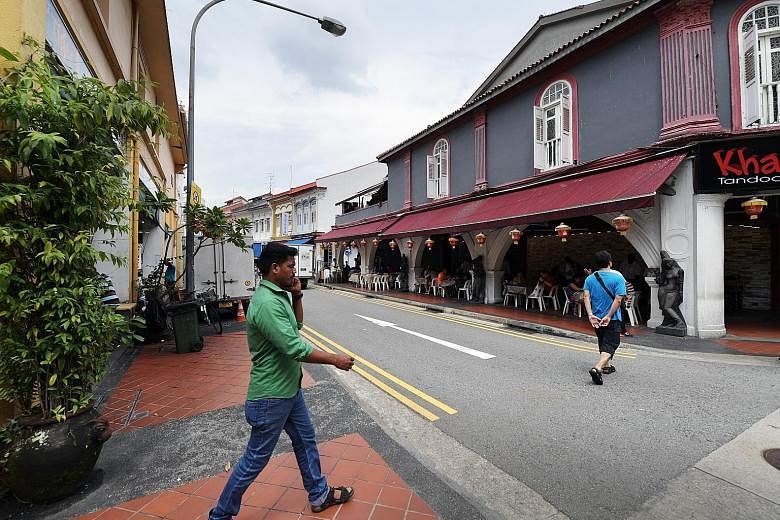The number of public-order incidents related to liquor consumption has fallen following tighter regulations on alcohol sales and public drinking.
While businesses have seen their liquor sales drop, residents cheered the increase in public safety.
There were 251 such incidents in 2014, before the Liquor Control Act (LCA) came into effect in April 2015. It dropped to 97 cases in 2015, and 135 cases last year. These included offences like rioting, affray and causing serious hurt. The law bans drinking in all public places from 10.30pm to 7am, among other things.
Police said the number of class- three alcohol licences issued for the Liquor Control Zones of Little India and Geylang declined by about 30 per cent from 2014 to last year, even as the total number of licences remained "fairly constant" for the same period. Class-three licences are given to retailers who sell liquor for consumption at places other than where the liquor was bought.
Since 2015, 15 retail licence holders have committed infringements for supplying liquor outside the permitted hours of 7am to 10.30pm.
There are stricter controls in the Liquor Control Zones, which are deemed to be places with higher risk of public disorder because of excessive drinking. For instance, public drinking is banned from 7am on Saturday to 7am on Monday.
Tanjong Pagar GRC MP Melvin Yong, whose ward includes the Little India area, said: "Residents have expressed happiness with the LCA in Little India as it has reduced incidents of public disturbances such as fights occurring due to inebriated visitors."
-
NUMBER OF PUBLIC-ORDER INCIDENTS RELATING TO LIQUOR CONSUMPTION
-
251
in 2014
-
97
in 2015
-
135
in 2016
Ms Zhao, 55, who has lived in Little India since 2005, said she has seen improvements in the neighbourhood.
The insurance agent, who declined to give her full name, said: "There are fewer people who gather here now, in part due to the increase in security patrols."
However, businesses in the controlled zones have felt the effect of the curbs.
Ms Chai Pei Chee, 35, a shop assistant at Soon Seng Eating House in Geylang, said alcohol sales have dropped by more than 50 per cent since the new law kicked in.
"The liquor restriction affects not only the liquor sales, but also our other businesses. Fewer people coming to drink has also affected our food business," she said.
In Little India, the owner of Kathika Supermarket, Ms Kumar, 50, said liquor sales have declined by 80 per cent since 2015, and her main customers have changed from foreign workers to locals. She declined to give her full name.
But Mr Yong observed that "many stalls have managed to adapt and normalise sales to pre-LCA levels" during his market visits in the area. He said: "We have also seen stalls in Tekka Centre diversifying their variety of foodstuffs to target a wider crowd and also to focus sales on the timings of the day and week not affected by the LCA."
Singapore Management University sociologist Paulin Straughan said the statistics should be welcome news for all members of the community.
But she added: "Laws and regulations cannot be the only solution to solve the problem of public disorderliness. We should look at how else we can engage foreign workers, such as through sports, if their main leisure activity is drinking."
The chairman of the Little India Shopkeepers and Heritage Association, Mr Rajakumar Chandra, 59, said: "Little India is much more than just the number of people who gather there. It is a place with a lot of heritage and community bonding, with 24-hour shopping and ethnic-related products - all these still keep Little India vibrant."


